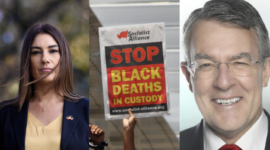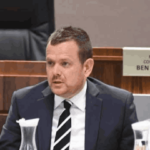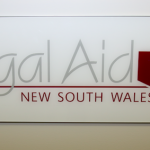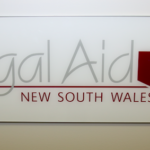Thorpe Warns of Rising Custody Deaths, as Underfunded Aboriginal Legal Services Shut

The Aboriginal Legal Service shut down operations in thirteen regional areas of NSW on 15 May of this year, not due to there being any lack of demand for its services, but due to the fact that federal funding has not increased with the 100 percent spike in the need for its services nationwide since 2018.
Indeed, in Queensland, the Aboriginal and Torres Strait Islander Legal Service (ATSILS) had already suspended its operations in four areas of that state in April. And as matters sit, this reduction in legal services focused on First Nations communities is set to be repeated nationwide.
But the closures are no surprise. Peak body NATSILS (National Aboriginal and Torres Strait Islander Legal Services) had been warning government that the pinch was on, and a $250 million emergency boost is needed to deal with rising demand, with at least $54 million to cover the next six months.
The government, however, responded to the crisis in ATSILS services by allowing a meagre $21 million in extra funding at the recent budget, whilst a spokesperson for attorney general Mark Dreyfus has confirmed that the nation’s chief lawmaker will be reviewing funding arrangements.
But as Independent Senator Lidia Thorpe warns, these services are essential for First Nations communities, as the entire criminal justice system has always disproportionately targeted First Nations peoples, and a stint in prison can equal death for them.
Deaths and rights abuses
“The levels of incarceration will rise, deaths in custody will rise and human rights abuses will rise,” Senator Thorpe said. “ATSILS, despite always being underfunded, have demonstrated their critical role in defending the rights of First Nations people from government.”
“If it wasn’t for the Victorian Aboriginal Legal Service’s work in 2017”, there would still be children locked up in maximum security adult prisons,” the Gunnai Gunditjmara Djab Wurrung woman told Sydney Criminal Lawyers.
In November 2016, the Victorian government locked up fifteen youths, as young as 15, in a unit of that state’s Barwon Prison, a maximum-security facility for adults, and despite multiple court rulings determining this was unlawful, they weren’t released until May the following year.
And the Victorian Aboriginal Legal Service played a key role in taking the state government to court, as well as in the #KidsOutofBarwon community campaign, which all led to practice being brought to an end.
“The funding gap comes at a time when governments across the country are pushing tough on crime agendas that are already putting pressure on legal services,” Thorpe underscored.
“The demand for legal service is growing sharply and underfunding results in First Nations people being represented by overworked lawyers or not having any representation by ATSILS at all.”
Lethal force
Aboriginal and Torres Strait Islander peoples now make up 32 percent of the Australian adult prisoner population, despite only accounting for only 3.2 percent of the nation’s overall populace.
The disproportionate number of Indigenous peoples in the prison system is drastically climbing. In 2017, their numbers made up 27 percent of those inside, while on the 1991 release of the Royal Commission into Aboriginal Deaths in Custody report, they made up 14 percent of adult inmates.
This makes Aboriginal and Torres Strait Islander peoples the most incarcerated group on the planet.
And numerous sets of statistics and reports reveal that First Nations people are more likely to be targeted and arrested by police. The courts are more likely to sentence them to gaol. They’re more likely to be arrested and locked up over minor offences, and this applies to being denied bail as well.
First Nations peoples further have a much greater chance of losing their lives in gaol, compared to their non-Indigenous counterparts.
The Royal Commission into Aboriginal Deaths in Custody made 339 recommendations to prevent this crisis from continuing, most of which have never be actioned.
“The failure of the federal government to fund ATSILS in the budget confirms they have no commitment to implementing the recommendations from the Royal Commission into Aboriginal Deaths in Custody,” Thorpe made clear.
“This means they have no commitment to preventing Aboriginal deaths in custody.”
As of last December, 540 First Nations deaths had happened in the custody of either police or corrective services since the handing down of the recommendations. Not a single officer has ever been convicted over one. And this number continues to grow exponentially, like the prison rate.
Lethal delaying tactics
“The government continues to tinker around the edges rather than take action to deliver real justice – real justice is three decades overdue,” Senator Thorpe maintained. “They talk about closing the gap but refuse to implement recommendations to close the gap.”
The Albanese government is currently organising a referendum to determine whether to establish an Indigenous voice to parliament, which would be a body of First Nations representatives advising the executive on law reforms concerning their peoples, which would have no veto powers.
The current example of the various ATSILIS calling for emergency funding just to maintain their workload having received an inadequate budgetary response and a flimsy promise from the attorney general to think about it, might be considered an example of how the Voice may fare in the future.
This is the point that Thorpe has been making about the Voice since it was first proposed in 2017. The senator, as has the broad progressive and long-established Aboriginal rights movement, has been calling for treaty-making, prior to any repeat of the previous advisory bodies of the past.
Following the budget outcome, NATSILS chair Karly Warner asserted that her organisation expects “service freezes to continue”, which means bad outcomes for Aboriginal and Torres Strait Islander peoples, including “unjust incarceration and separated families”.
“The need for ATSILS to be adequately funded is highlighted throughout the Royal Commission into Aboriginal Custody Deaths,” Thorpe pointed out.
“The increased demand for legal services is not being disputed, so the federal government’s review into ATSILS will only delay the delivering of critical funding,” the senator warned in conclusion.
“This delay will cost lives, tear families apart and contribute to the rising incarceration rates of First Nations people.”







